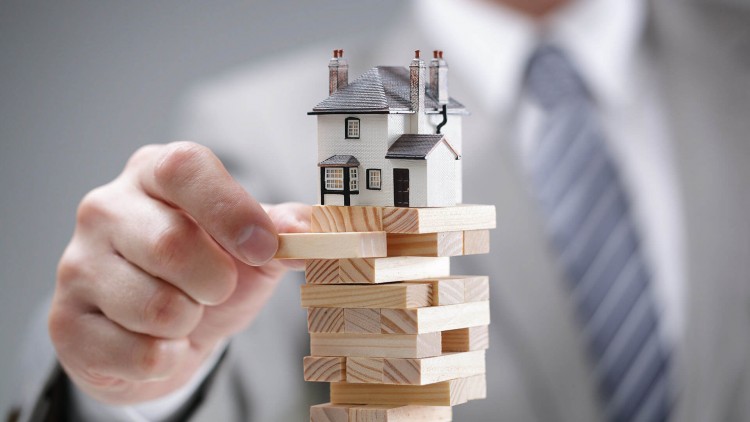
Perhaps you have some extra savings or recently received inheritance money and would like to invest it in property. Property investment and real estate ownership, as entrepreneur Andrew Carnegie once said, is why 90% of millionaires have become rich.
Depending on the size of your budget, and where you’re looking to purchase, owning a piece of property, either an apartment or house comes with both some financial benefits, but also a lot of responsibility. Many private investors make use of property management groups as a way to deal with administration and tenant issues, if any.
Additionally, one should also consider if you’re purchasing a property simply to live in it or perhaps rent it out. While renting it out can generate passive income, there are also additional implications such as finding tenants, upkeep, maintenance, and taxes involved.
But these factors shouldn’t completely damper your enthusiasm. Property investment, both residential and commercial, is still a relatively lucrative financial investment decision.
The housing market is in a frenzy at the moment, and home prices are set to soar. Even more, as we’re gearing for interest hikes in the next coming months - perhaps it isn’t that bad of an idea at all to purchase some real estate right now.
So what do you want to buy? An apartment, or a house. Let’s see which is better for you, and your budget.
Purchasing Factors
When investing in property, as we now understand, it does have physical implications. Looking at whether an apartment or house is better we will review three important purchasing factors one should consider when buying for the first, or second time.
Capital Growth: Buying any asset, in this case, some real estate, you want to increase the capital growth of it. Meaning, that over time, the value of the property will increase more than what you’ve originally purchased it for.
Capital growth, which can also be called capital appreciation is considered one of the most important indicators of how well a real estate investment will perform in the coming years. Overall appreciation should be increasing, not decreasing and this is solely based on the land value, its surroundings, and available amenities.
Rental Return: So now you have your apartment or home, how long is it going to take you to repay the mortgage or get your investment back? Four, five, ten, twenty-five years?
What’s included in the rental agreement? Creating a rental agreement that ensures both parties win, while you can still make some money is a crucial element to the overall success of your investment.
Ease of Management: Some things are easier than others, and there’s no way to deny it. Think of how easy, or challenging it may be to manage a property, and will it be worth your investment, and time?
Fixing broken pipes, replacing windows, or making some updates as time passes is required to keep new tenants interested and willing to splurge on your investment.
Now that we’ve covered the basics let’s see which is better.
Apartments
Capital GrowthApartments, while most of them, are somewhat more affordable to purchase. While it may be a better financial investment, apartments’ appreciation increases marginally over time.
As opposed to a house that is situated on a piece of land, apartments take up little space and land appreciation is less. On the other hand, apartments in popular areas, close to cities, and recreation facilities have better value than homes in further away suburbs.
Having an average apartment, in a high-density area, with loads of activities and a large pool of tenants, is considerably better than a high-end luxury apartment situated in an off-beat neighborhood.
Rental ReturnThe rental and buying market is buzzing at the moment, thus finding suitable tenants may be easier. Millennials and Gen Z renters are keen to move into the city, and while they’re able to pay - how much of this money ends up in your pocket?
Cash flow might be limited, as certain levies will need to be paid to the body corporate, regular updates as renters come and go, city utilities, and there’s also taxes. But it’s not all bad, apartments have a high return of interested tenants if situated in a sought-after and popular area.
While they’re cheaper to buy, some investors won’t require an additional mortgage, and if they have one, bond payments are lower than with houses.
Ease of ManagementA bit of paint now and again, fixing the creaking door, and replacing the faucets. It might not be that simple, and potential investors will need to look at what they will have to replace and fix before new tenants can move in.
Buying an apartment doesn’t give you all the freedom you have, but the ease of management can be substantially lower compared to houses. Minimal upkeep is a plus, but who says your tenants will look after your investment the way you want them to? There’s always a catch somewhere, and with apartments, it comes down to the general maintenance.
Houses
Capital GrowthAs the value of land increases, appreciation of the house itself won’t reflect the growth on your investment, but rather the physical land on which it's standing. If you purchase a house at a low price and look to resell it in twenty years, chances are capital growth would’ve substantially increased.
There’s more value in houses, but it does come with additional costs such as high property taxes, homeowner association fees (HOA fees), upkeep, and if the house isn’t situated in an area with schools, shopping centers, or other amenities capital return may be slowed, as finding tenants can be tricky.
Rental ReturnWhen renting out a house, property investors need to consider how additional fees and costs will affect the rental price. There might also be a mortgage that still needs to be paid off over time, and short-term renters can become a bigger risk than long-term renters.
As you adjust rental amounts annually for inflation and taxes, consider the pool of tenants you want to attract. These could be small families, young couples, or successful individuals who are willing to stay longer, giving you some peace of mind as opposed to apartments.
Ease of ManagementHere’s where the major downside comes in, houses are more work to maintain. From large gardens, pools, outdoor living areas, sewage, and the interior, there’s way more upkeep that needs to be managed.
Unless you have the perfect tenants that will take care of these issues themselves, you’re solely responsible for the general maintenance of the house.
It’s not all that bad. Because at the end of the day it’s your property. You can demolish the house and build smaller flatlets. You can completely renovate it and charge more. Whatever you want to do, it’s your property and your investment.
The Takeaway
Property investment creates passive income. It allows investors a better opportunity to increase their wealth and find new potential investment opportunties. There are both good and bad sides to every investment, but for first time investors, property remains a highly lucrative move, as it can offer you better long-term returns, and generate more passive capital gains.











Author
Homesgofast com
Homesgofast.com is an international real estate portal and news source for Google news. Publishing international real estate, finance, homes and travel-related news and blogs for a targeted audience since 2002. Each news item is circulated to thousands of potential readers each day and is also available to the millions of people who sign up for Google news alerts. Find homes offered for sale and to rent direct from owners and some of the best real estate agents from over 35 countries